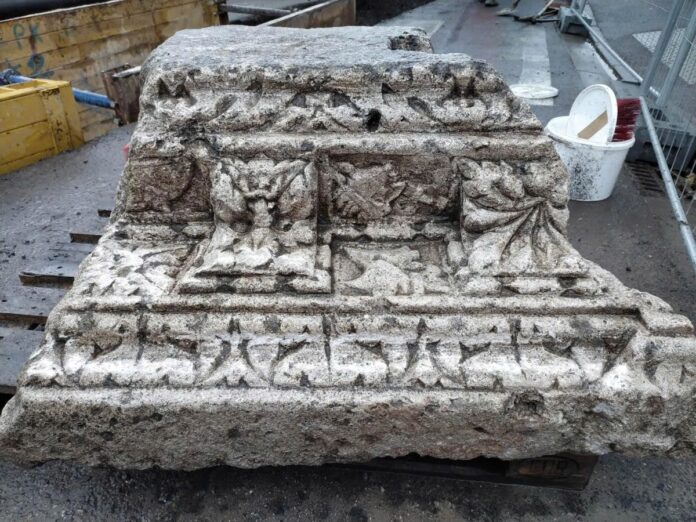Monumental Discovery in Toul, France
Corinthian-Style Carved Block Unearthed During Infrastructure Project
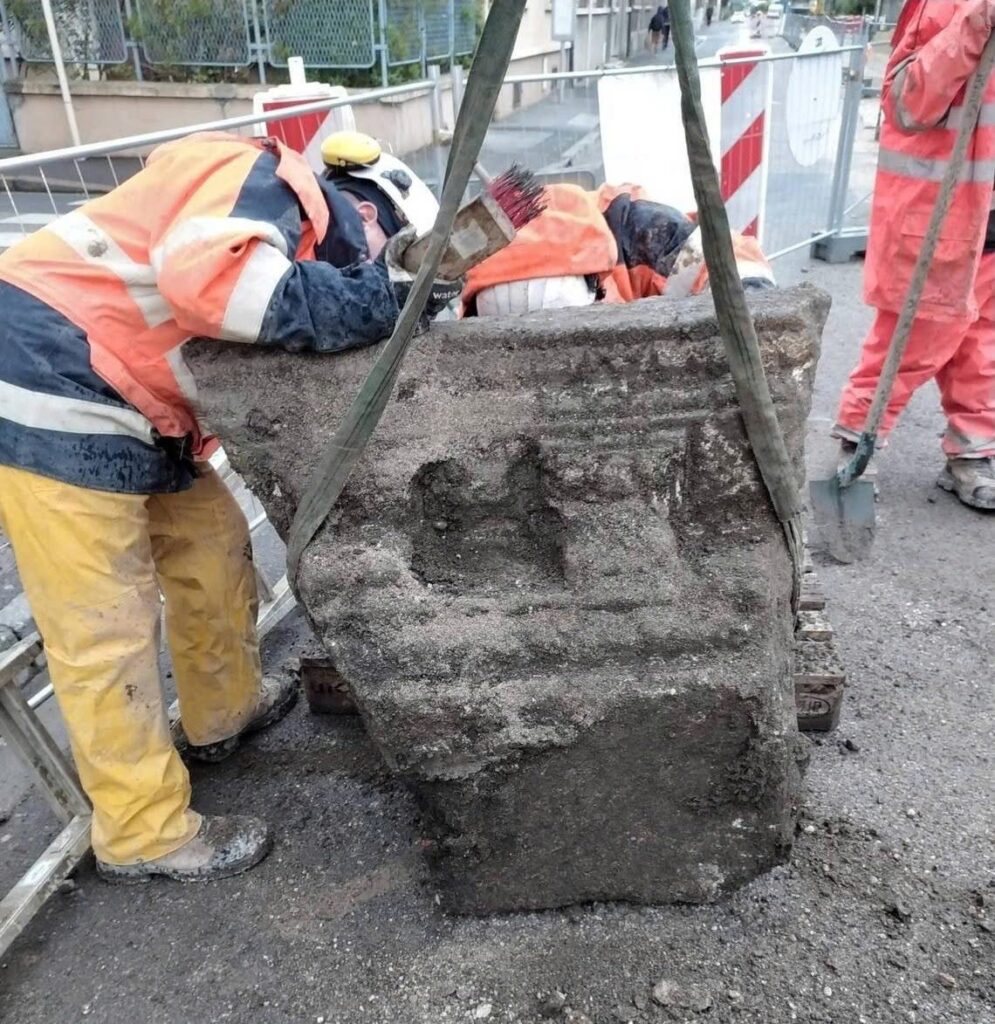
In the ancient city of Toul, northeastern France, a remarkable archaeological find has emerged during a modern construction project. As workers were excavating trenches for a new district heating network, they uncovered a large, elaborately carved block of limestone – a fragment of a Gallo-Roman monumental public building.
A Glimpse into Toul’s Storied Past
Toul, an ancient settlement that flourished at the crossroads of Roman roads, has a rich history spanning millennia. Originally a Leuci hillfort, the town later came under Roman rule and was fortified with massive defensive walls constructed from repurposed building materials, known as spoglia.
Decapitated Gaul and Symbolic Carvings
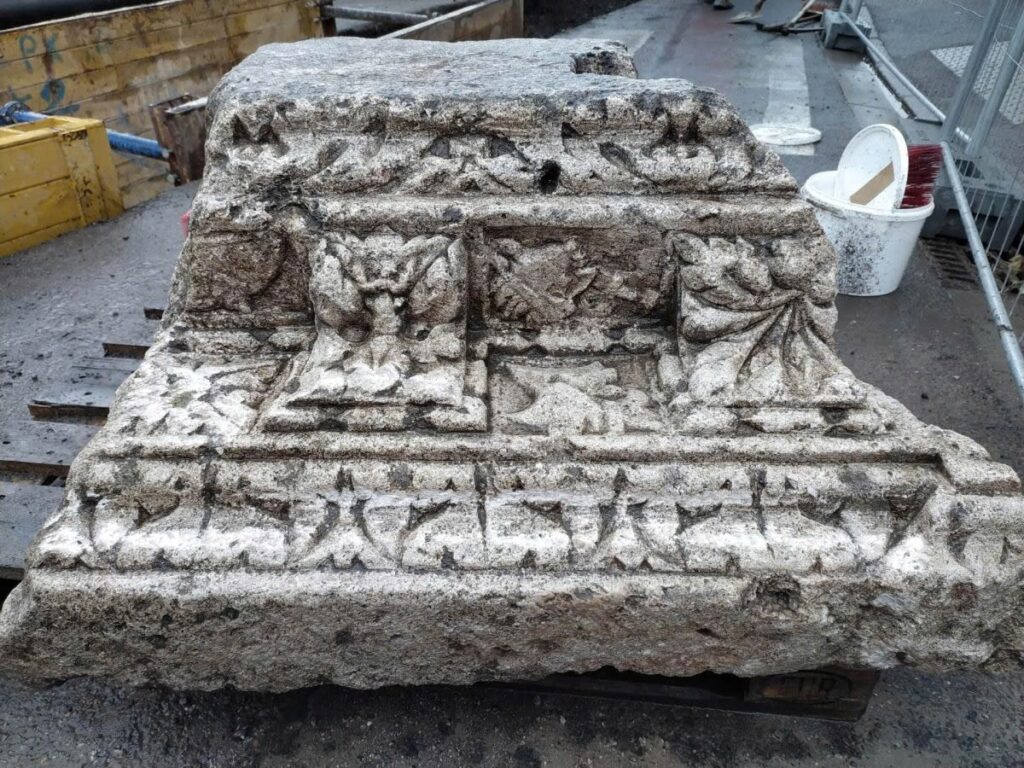
The discovered carved block, measuring over four feet wide and weighing nearly 900 pounds, features an intricate design. It boasts two elaborate modillions, or architectural brackets, adorned with acanthus-like vegetation and a Gallo-Roman “Green Man” figure. Between the modillions are rectangular metopes, one carved with what appears to be a shield, the other with an iconographic motif seen on local potin leuque coins.
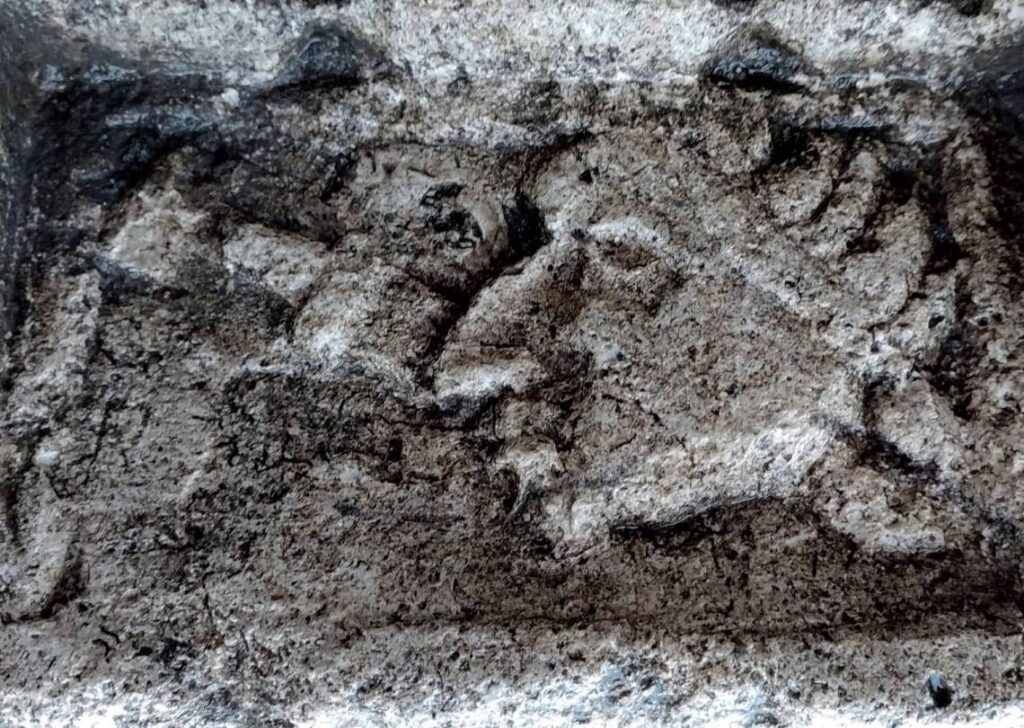
However, the most striking element of the block is the severed head of a Gaul, carved with a hollow eye and resting on what is identified as a Roman sword. This violent image is a clear depiction of the Romans’ triumph over the Gallic people in the region.
Significance and Future Preservation
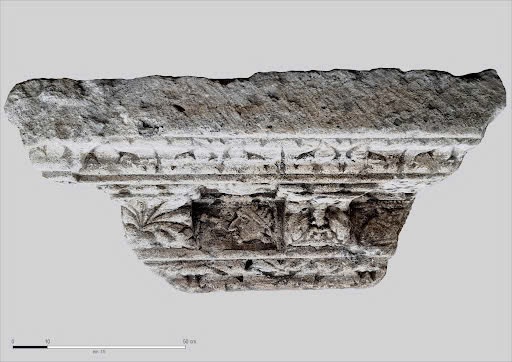
Archaeologists believe this monumental carved block was once part of the entablature, or decorative upper portion, of a grand Gallo-Roman public building, possibly a temple, theater, or triumphal arch. Comparable examples from the second century AD suggest the block’s impressive size and elaborate decoration.
The discovery of this ancient architectural gem has provided a fascinating glimpse into Toul’s storied past. The carved block has been carefully preserved and will undergo further study and conservation before eventually being displayed at the Toul Museum, allowing visitors to marvel at this remarkable remnant of the city’s rich Gallo-Roman heritage.
